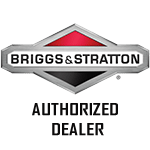732-297-9515 | 3860 NJ-27 Princeton, NJ 08540
AUTONET TV
Archive for August 2021Don't be Fuelish (Signs Fuel Pump is Failing)Posted August 15, 2021 11:47 AMA driver of a large SUV loaded with equipment was heading on a 7-hour work trip when he stopped at a gas station to refuel. When he went to restart his SUV, it turned over but wouldn't catch. Try as he might, he was never able to get it started again. Of course there are many things that can cause those symptoms, but the next day he had his SUV towed to a service repair facility. Using their test equipment, they were able to pinpoint the problem. His fuel pump had failed. The pump, which was located in the fuel tank, had to be replaced, and after awhile he was back on the road, delayed, but happy to be up and running again. What had happened is that the pump was not strong enough to deliver adequate fuel to his engine, vital to being able to start it. It had delivered just enough pressure in the morning to get it started the first time, but it was on its last legs. He had been having trouble starting his SUV in the days leading up to this trip, a clue that something was wrong. The engine relies on a certain pressure of fuel from the pump to run properly, and there are some other signs to be aware of that your fuel pump may need to be replaced. If you are putting strain on your engine, such as going uphill or hauling a big load, and the engine sputters, it may be a sign that the pump isn't delivering that consistent pressure. Another warning sign is if your engine is running hot and then stalls. That could mean your fuel pump is getting weak. Sometimes you might notice your vehicle suddenly speeds up on its own or your fuel economy goes from good to poor in a short time. If your fuel gauge shows you have plenty of fuel in the tank and your engine stalls, that's another possible sign of a failing fuel pump. Technicians have special equipment to see where the fuel problems are, and there are many possibilities. Have your vehicle checked before you're left stranded. Oh, and one more tip to prolong the life of your fuel pump. Since it is cooled and lubricated by the fuel in your tank, make sure you keep at least a quarter of a tank of fuel at all times. Avoid your "low fuel" light going on and you may be helping yourself avoid having to replace your fuel pump. KPS Princeton Garage Regular Schedule or Severe Service Schedule at KPS Princeton Garage?Posted August 8, 2021 8:12 AMToday's KPS Princeton Garage article focuses on severe service maintenance. Many Princeton drivers are not aware of them and yet there are also very vocal advocates in NJ who think that severe service schedules apply to everyone. Somewhere between a complete lack of awareness and the dire blanket statements lies a reasonable approach to severe service maintenance at KPS Princeton Garage. Here's another example. Most trips around Princeton are less than 10 miles/16 km and outside temperatures are below freezing. This is the same reasoning, but in very cold NJ weather it takes even longer for the oil to get hot enough to evaporate the water, hence 10 miles/16 km as opposed to 4 miles/6.4 km. KPS Princeton Garage KPS Princeton Garage Advice on What to Pour into Your VehiclePosted August 1, 2021 7:19 AMChanges in vehicle design and manufacture have resulted in changed fluid requirements for our vehicles. With the sophistication of engines, transmissions, differentials, etc., it's best for Princeton residents to always use the proper type of fluid for their vehicle. Using incorrect fluids can actually damage your engine. KPS Princeton Garage | ||
SearchArchiveSeptember 2020 (18)October 2020 (4) November 2020 (5) December 2020 (4) January 2021 (6) February 2021 (4) March 2021 (4) April 2021 (4) May 2021 (5) June 2021 (4) July 2021 (4) August 2021 (5) September 2021 (4) October 2021 (5) November 2021 (4) December 2021 (4) January 2022 (6) February 2022 (4) March 2022 (4) April 2022 (4) May 2022 (5) June 2022 (4) July 2022 (5) August 2022 (4) September 2022 (4) October 2022 (5) November 2022 (4) December 2022 (4) January 2023 (5) February 2023 (4) March 2023 (4) April 2023 (5) May 2023 (4) June 2023 (4) July 2023 (5) August 2023 (4) September 2023 (4) October 2023 (5) November 2023 (4) December 2023 (5) January 2024 (5) February 2024 (4) March 2024 (5) April 2024 (4) May 2024 (4) June 2024 (5) July 2024 (4) August 2024 (4) September 2024 (5) October 2024 (4) November 2024 (4) December 2024 (5) January 2025 (4) February 2025 (4) March 2025 (4) | CategoriesShocks & Struts (1)What Customers Should Know (34)Oil Change (4)Alternator (3)Fuel System (4)Brakes (5)Winter Prep (3)Transmission (2)Fluids (6)Service Standards (1)Maintenance (7)Fuel Economy (4)Exhaust (3)Battery (3)Air Conditioning (5)Fuel Saving Tip: Slow Down (2)Timing Belt (1)Cooling System (4)Steering (5)Check Engine Light (1)Older Vehicles (1)Wheel Bearings (1)PCV Valve (1)Headlamps (2)Auto Safety (3)Tires and Wheels (1)Inspection (1)Water Pump (1)Alignment (1)Tires (3)Winter Tires (1)Spark Plugs (2)Drive Train (1)Dashboard (1)Cabin Air Filter (1)Fuel Pump (1)Tire Rotation and Balancing (1)TPMS (2)Brake Service (2) | |
coupons
$10 OFF FULL SYNTHETIC OIL & FILTER CHANGE
view couponTestimonials
Ashis Bhisey, 01/24/2025
Bob and Mark always do a good job for a fair price and complete the repairs on time!








